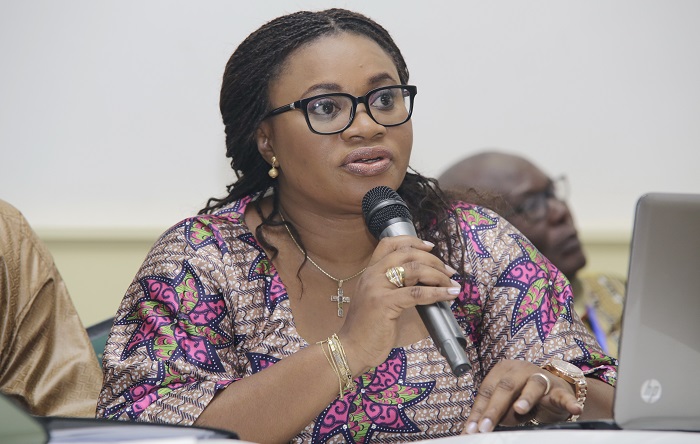
Electoral Commission to engage knowledgeable collation officers
The Electoral Commission (EC) has announced 27 key electoral reforms as part of preparations towards delivering free and fair elections.
The electoral reforms, dubbed: ‘Towards delivering first-class elections”, the EC, in consultation with the Inter-Party Advisory Committee (IPAC), has closed down the ‘strong room’ and replaced it with an open and transparent National Results Collation Centre.
Electoral officers and party agents will now take oaths before a magistrate or judicial officer, instead of an officer of the EC, to make them take their work seriously.
In the same vein, C.1. 94 has made provisions for election officials to be punished and sanctioned for any breach of the electoral law.
Time with commissioners
The reforms were announced by Mrs Charlotte Osei, the Chairperson of the EC, at a forum organised by the commission in Accra yesterday dubbed: ‘Time with EC commissioners’.
She said the minimum educational qualification for various levels of election officials had also been raised to attract qualified persons.
She stated that the EC had challenges in recruiting temporary electoral officers from the universities because of the presence of political groupings such as TEIN and TESCON.
She said the commission was also appointing knowledgeable collation officers, including lawyers and accountants to cross-check results to make sure they arrived at the same conclusion at the constituency level.
“The EC has improved the quality of training of temporary election officials and its staff to facilitate the speedy tallying of election results,’’ she stated.
Mrs Osei announced that the commission had also improved the compensation package for electoral officers to motivate them to put up their best during the elections.
Other reforms
The EC chairperson,- however, said three electoral reforms were rejected by the EC when the Electoral Reform Committee, made up of the EC, the political parties, governance institutions and faith-based organisations, presented its report to the commission.
The rejected reforms were the inclusion of civil society groups on the IPAC, instead of being ex-officio members of IPAC, no verification no voting and e-voting.
She explained that electoral injustices ought not be inflicted on voters, as machines could break down at any time and the EC would be compelled to resort to manual verification where biometric verification failed.
She, however, said the IPAC, as part of the electoral reforms, had been institutionalised with its monthly meetings and minutes circulated to all stakeholders.
She said another key reform was the accepted definition of over-voting, which is now when the number of valid votes cast exceeds the number of voters verified, this being a tighter definition than the number of valid votes cast being more than the number of registered voters at a polling station.
She said that definition presented a number of challenges during the general election in 2012, since not all the registered voters at a polling station were expected to vote on an election day.
Continuous voters registration
The EC chairperson said the EC and IPAC had agreed on modalities for continuous voters registration, in addition to periodic registration.
She also announced that the EC had expanded the list of special voters to include EC officials and media personnel, which this time around had been captured in C.I. 94.
Mrs Osei said as part of the reforms, the EC undertook the drawing up of a calender of activities for the elections to be held in November 7, but since Parliament rejected the new date, the calender had been subjected to reviews and amendments.
Recruitment
She said presently, the EC was recruiting 145,000 temporary staff to man the 29,000 polling stations, while procurements and some materials had begun to arrive.
On the Electronic Results Transmission System (ERTS), she said two companies had been shortlisted and political parties invited to the demonstration of their equipment and how they worked to facilitate the transmission of results to the National Results Collation Centre.
Mrs Osei said the centre would be open to TV cameras and the media to observe the counting of the presidential ballots, explaining that the parliamentary results would be declared at the constituency level.
